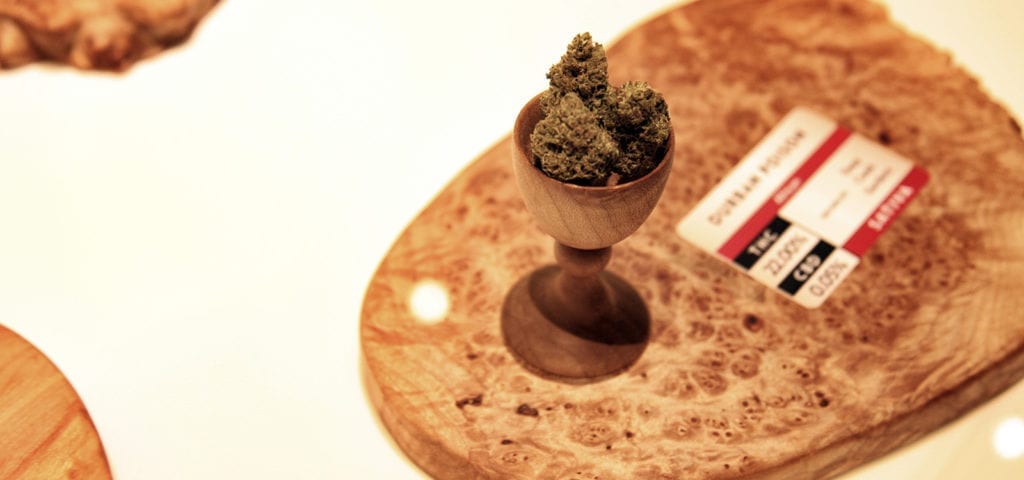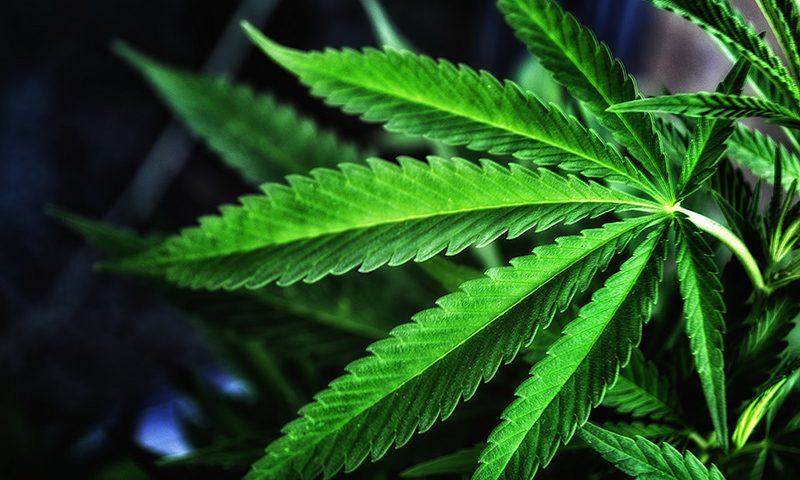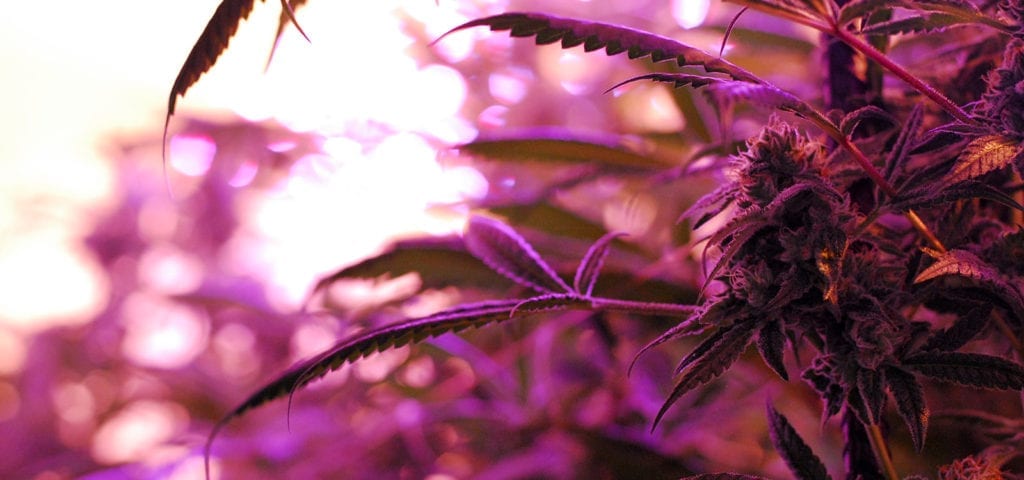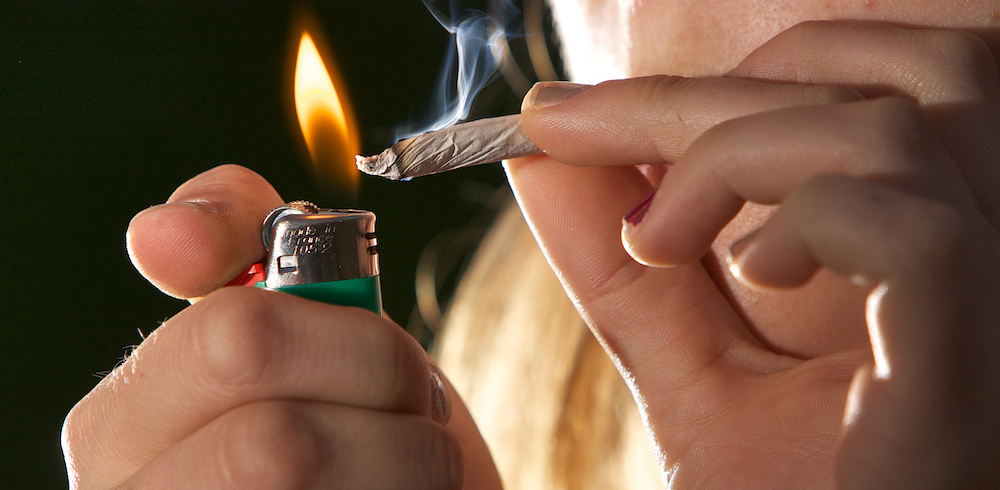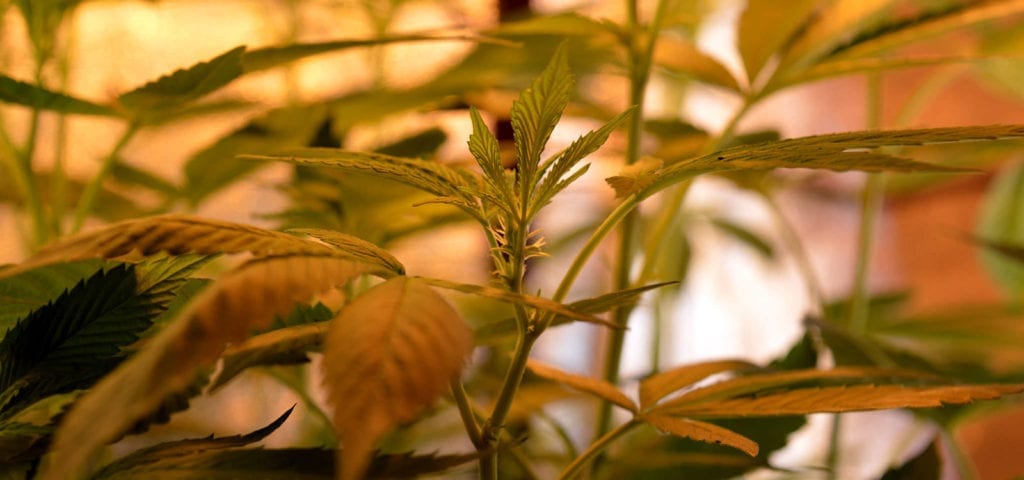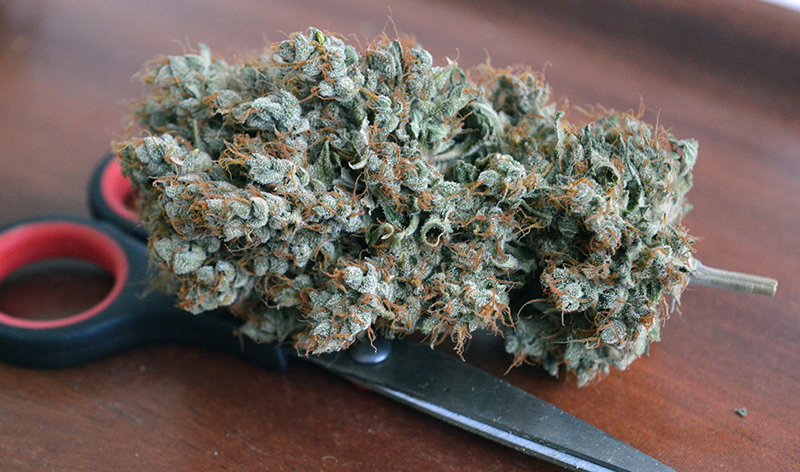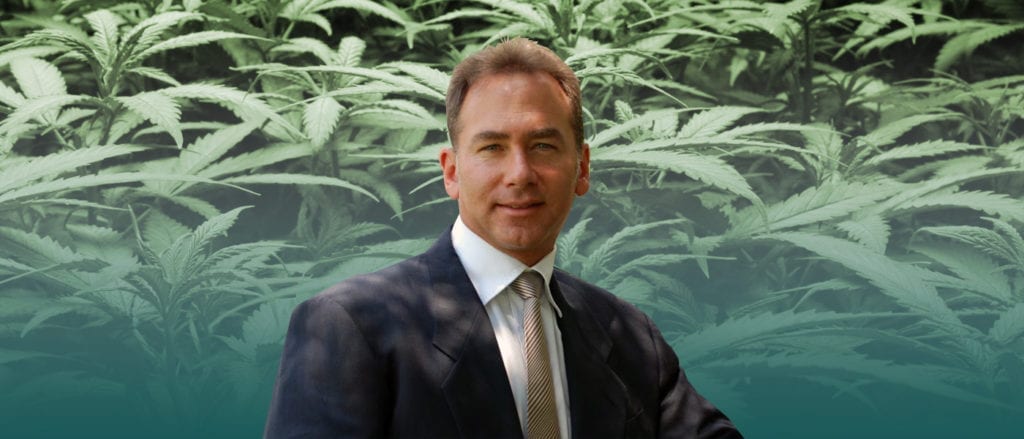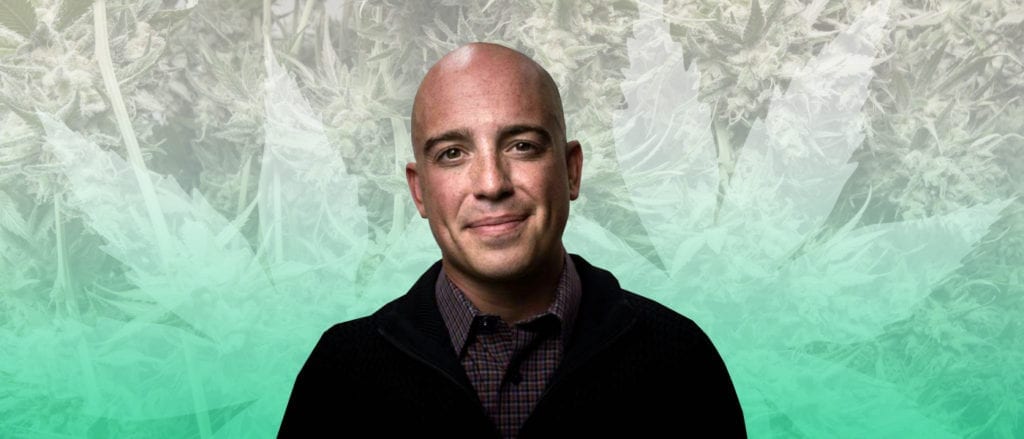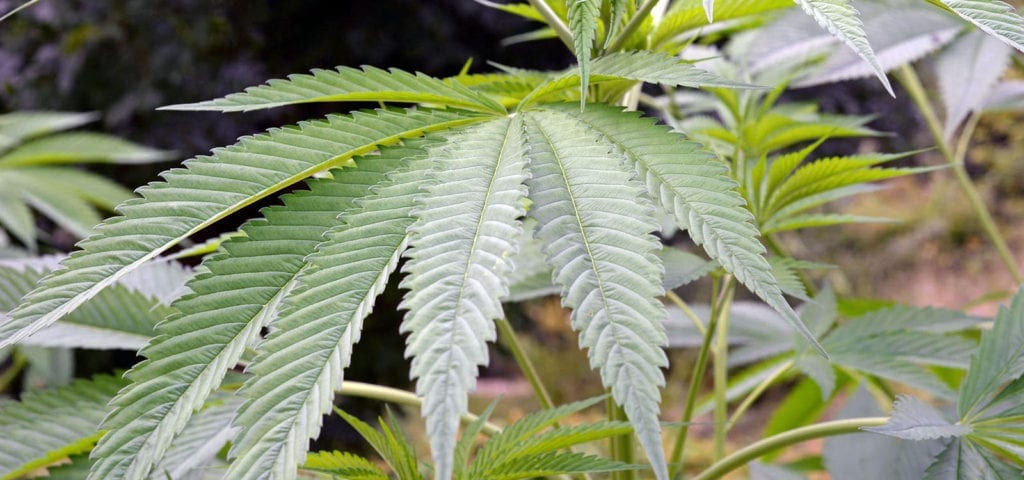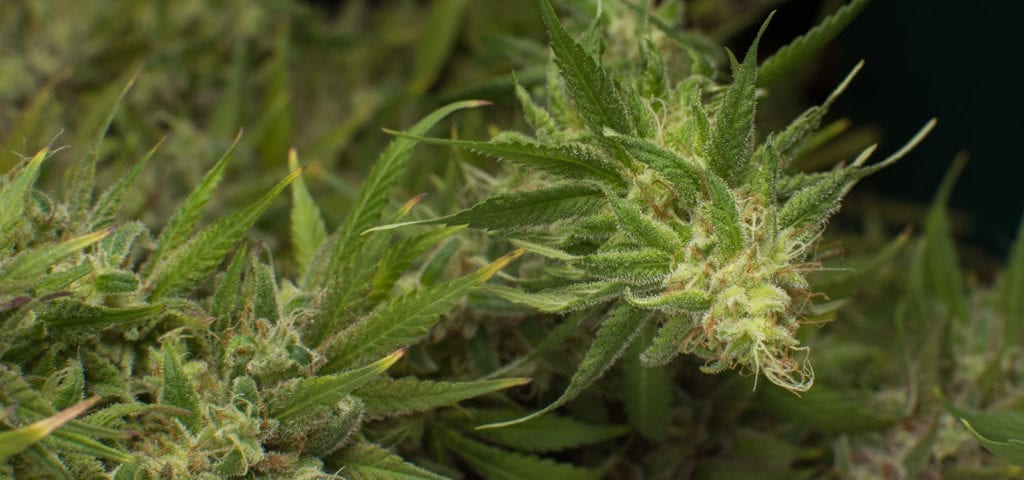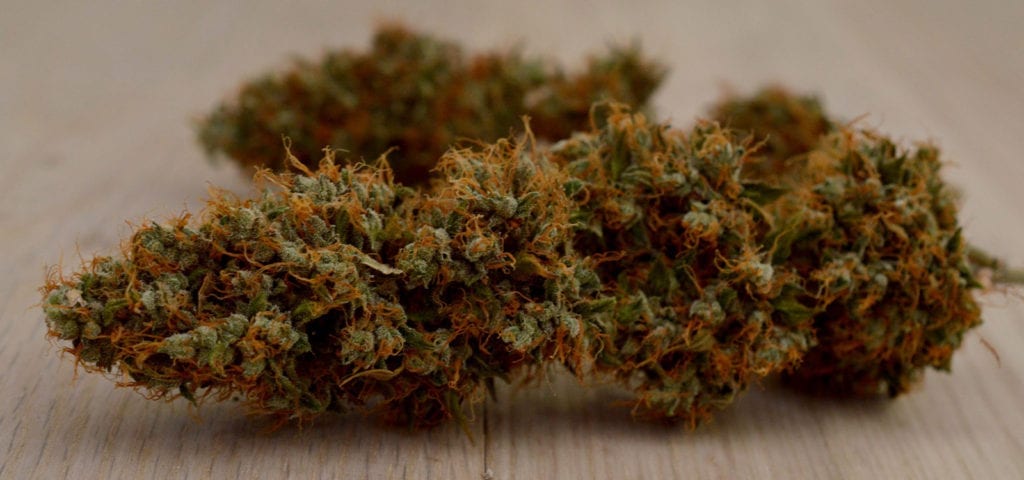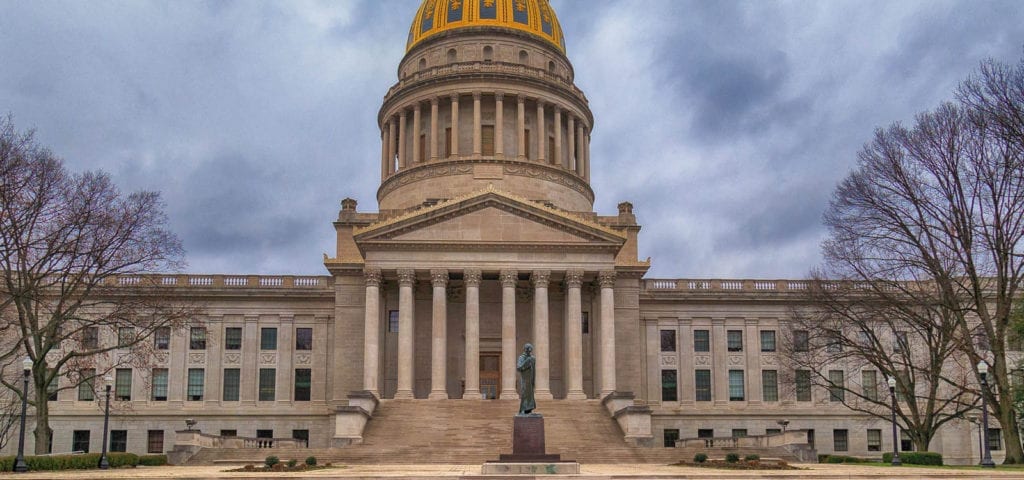Josh Haupt is the owner of three Colorado-based cannabis companies: Success Nutrients, Superfarm, and Tree House. Recently, Josh joined us for an interview about his recent release of Three a Light (as in three pounds per light), a luxury cannabis growing guide based on his experience. In this interview, Josh tells our host TG Branfalt about his earliest medical cannabis experiences — including the story of the first plant that Josh ever grew — as well as what readers of the book can expect from their purchase. The two discuss the reasons why Josh authored Three a Light, what the writing process was like, and what were the driving factors behind the book’s emphasis on luxurious photography and elegance.
Subscribe to the Ganjapreneur podcast on iTunes, Stitcher, SoundCloud or Google Play.
Listen to the podcast:
Read the transcript:
TG Branfalt: Hey there, I’m TG Branfalt, and you’re listening the Ganjapreneur.com podcast. The Ganjapreneur.com podcast give us an opportunity to speak directly with entrepreneurs and experts who are working on the front lines of the industry to normalize cannabis through responsible business, education, and activism. As your host, I will try to do my best to bring you actionable information to help you plan, grow, and manage your cannabis business. Today, I’m joined by Josh Haupt, the Three a Light author, owner of Success Nutrients, Superfarm, and Tree House out in Colorado. How are you doing this morning, Josh?
Josh Haupt: Doing wonderful. Beautiful day here. And yourself? You guys are up in New York, right? Is that right, are you in Detroit?
TG Branfalt: No, I’m actually … I was in Albany about six months ago. I’m in Detroit, Michigan. We’ve had back-to-back 50 degree days. So I’m excited to finally see some sunshine.
Josh Haupt: Yeah, count it.
TG Branfalt: Let’s start with talking about your background. I know that there’s a specific reason that you gravitated toward cannabis. How about you start with that story and how that lead to your place in the industry.
Josh Haupt: Yeah. I guess if we start from square one, it would be my epilepsy. I was diagnosed with epilepsy at about 13, 14 years of age. I had a good amount of seizures. They got me started on quite a heavy amount of antibiotics that carried a whole slew of side-effects. After a few years of taking these antibiotics, I realized that it wasn’t the best long-term solution, if you will. So I started working around with some medical cannabis and that was drastic for me as far as my improvement with seizures and I was able to wean myself off of all the medication that they had me on. It was a much better option for my health. Started growing my own cannabis by like 15, 16 years old, and kinda had a small part of the garden. I was always tasked with taking care of the garden as a kid. So I had a small part of the garden that I kinda had my own little hidden plant in. By the time it got big enough, my dad found it. He said, “Well we can’t kill it now, buddy.” And so it went.
I’ve definitely fallen in love with cannabis from a bunch of different perspectives. One of the things that we try to do with the book, was just make it more politically acceptable to the U.S. I feel as though the last two to four and six years have been drastic as far as the masses of people understanding that there are some serious medical benefits of cannabis. Whether you’ve got Crohn’s really bad, or you have epilepsy, or you got PTSD, or whatever it may be, cannabis can definitely help you with these things … I don’t want to say much more than Western medicine can, but I know that it’s very very comparable, if not superior to Western medicine. That’s what really got me into cannabis, just trying to change the stigma around it. I would suggest that it’s probably the backbone behind all the businesses I’m a part of.
TG Branfalt: When your father found the cannabis plant, did you talk to him about how you were using it medically? What was that conversation like with your parents?
Josh Haupt: My parents were young when they had us, so I kinda had younger parents than a lot of my friends. My dad at the time … They had known that we were kind of smoking a little bit here, a little bit there, and they always encouraged a balance. They never really told us we couldn’t do it. They just said, “Hey buddy, make sure if you’re gonna do it, do it on the weekends and be safe about it. If you need to smoke at the house, that’s obviously fine.” We found some seeds in the bags that we were smoking, that old-school shwag, if you will. So I threw it in the garden.
So it wasn’t the hardest talk. My parents, they definitely understood that at the time, it was probably more recreational than medical anyways. I just didn’t really understand a lot of the benefits. But I would suggest that that talk was pretty easy with my dad. He’s a real great guy, and at the time, like I said, it wasn’t the biggest curve-ball for them, to know that we were smoking cannabis. ‘Cause they kinda already had a good idea. They had encouraged us, “Hey guys, if you’re gonna do it, make sure you bring it home and do it in a safe environment. Rather you do it and be safe than possibly make some bad decisions, or be out driving, or whatever it is you’re doing when you’re in high school.”
TG Branfalt: How did you figure out that this was a treatment for you?
Josh Haupt: Well it had come up when Colorado passed it for medical purposes. I had a buddy at school say, “Hey, you know cannabis actually really helps you with your epilepsy.” I said, “No way!” and then kind of dove into it from there. Cannabis helps epilepsy incredibly, however, the real property that comes from it that’s very beneficial is gonna be your CBDs. Your CBDs are just gonna help tremendously. I kinda gave up Western medicine altogether, and all my medication about six or seven years ago now. I’ve been doing amazing; it’s been great. I just take some CBD drops in the morning, I’ll have the occasional joint … It used to be throughout my day, but now my day’s so busy that I kinda have to wait ’til the end of my day, and I’ll just have a joint. That kinda just helps with lowering the stress, keeping the stress away. Stress plays into seizures incredibly, so cannabis is huge for that. The CBDs help your brain … All a seizure is, is a misfire of neurons, electrons, so the CBDs really help to balance those neurons and electrons. It’s most importantly, slow down the misfires.
TG Branfalt: The trial-and-error that patients have to go through in order to find out what works for them, too, is something that I really hope researchers and people making regulations in legal states … I really hope that they recognize that having a comprehensive medical program sort of eliminates this, having to … Again, this trial-and-error system.
You mention in your book, and I do want to talk about this … First thing, when we spoke briefly on Friday and I mentioned I had an industry guy here to my house and I told him I had the book. He was really excited to see it. We were talking up until that point, I hand him the book, he didn’t say a word for 45 minutes. It’s really elegant. It’s definitely your coffee table book, it’s something that, your friends come over and they pick up, and they’re like, “Wow!” That’s what the reaction of this individual was. He was very impressed by the color, by the ease of which the information is presented, the photography which, as a guy who loves that sort of thing, it’s really really top-notch.
Josh Haupt: Thank you. Thank you so much.
TG Branfalt: It feels like your holding a luxury item.
Josh Haupt: That’s the goal.
TG Branfalt: So that was something that you thought about when you decided to embark on this project. Can you tell us about the design process and the writing process for this book?
Josh Haupt: Yeah. The goal behind the book was simple. We didn’t have the ability … When I was, kinda rewind and say eight years, ten years ago, I was helping a lot of my friends up in the mountains, set up two lights here, four lights there. I’d give them a little pamphlet that just followed our regimen, say, “Hey. Feed ’em these nutrients, do these Schwazzes on ’em, and defoliate here.” Then I’ll show up and kind of help them along the way. So it was our little guide and when I’d set up my 15th friend, I was like, “Gosh, dang, man. I should just write a book on this.” Because there’s not a guide out there that exists, that says, “This is how you grow cannabis from A to Z.” You know, very thorough.
So we did exactly that. It took me about two and a half years to write the book. I thought it would be about six months to write it, but it’s just a lot of photos that you have to take, and then you have to retake, and retake, and retake. We knew one thing that’s for sure, that we were gonna charge a lot for this book, because it was gonna be something that the industry hadn’t seen yet, and most importantly, it was gonna be something that could really allow somebody to be very, very successful with if they chose to do it right. So, with the industry average being a pound a light, and all of a sudden you’re getting three. I mean, shoot. Even at the price point of 500 dollars, you have a book that pays for itself with one yield and one harvest and one light, let alone multiple lights and multiple harvests. So that was what we needed. We needed to make the book feel like it was 500 dollars.
So that’s where the whole … We tried to give it a Louis Vuitton approach to it, and say, “Hey, this is very elegant. This has a really strong feel to it.” And then on top of that, it has almost like a Apple user guide. Friendly steps, very, very user-friendly if you will as far as the integration of what we’re trying to teach the people. So we wanted to use a lot of pictures. Pictures are worth a thousand words, they say, so that’s why we wanted to scale up more on the photos and less on the actual content.
A lot of the books that are available right now for people to read about cannabis are gonna be very, very botanist-oriented. What I mean by that is a lot of times, people have a hard time reading them. We knew that the end user for our book was gonna be a guy or a person that wanted to teach themselves how to grow cannabis. And most importantly, do it on like a Saturday, or a day that they have off. And they’re also probably gonna want to smoke a joint before they dive into the book. If you wanted to smoke a joint and dive into another book, it would be very, very literature-based, it would be very hard to follow. But if you want to smoke a joint and then hop into this book, it’s gonna be easy. “Step, step, step, step, step. Here you go, and then you’re done.”
So that was the goal. We wanted to make it incredibly user-friendly but also make it feel like it was 500 bucks. That way, what you got the book, you weren’t like, “Oh my goodness. I just got this little paperback novel, and I just dropped a mint on it.” We really wanted to make sure it had this elegant approach, and kind of a stigma that like you said, that coffee table book, people are like, “Wow, this is sweet! I want to flip through it. What’s going on here?”
TG Branfalt: Yeah, and it is … As a guy who’s grown vegetables outdoors, I’ve never grown cannabis, I’m flipping through the book and I feel like if I were using this as a guide, at least the first couple of attempts, I would be able to do this.
Josh Haupt: Absolutely you would. We’ve had a ton of first-time, never grown before, using our book, and have actually hit three pounds a light. Which is unheard of if you take a first time grower and you said, over three pounds a light is … It’s been great. But that’s the goal though. The goal is, and we actually gave the book to a lot of people, family members, family friends, just saying, “Hey, will you flip through this and tell me if you’re confident to give it a shot?” ‘Cause they’re the perfect case, someone who … Even one of my aunts said the same thing, “Gosh, I feel like I could grow it now!” I said, “Cool! That’s the goal.” We want to make you feel like, “Hey, I’m confident enough to get started in this direction. I’ve always been a little overwhelmed before. But now, this really breaks it down in a manor of step by step by step. We can get this done.”
TG Branfalt: It also provides an outline of the tools that you need. Because, for somebody like me, that’s like, “Oh, I’m gonna grow some cannabis. I’m gonna start it in a plastic bag, I’m gonna throw it in some soil. And I’m just gonna, you know … ” The same way that you might start a garden plant or something. So to have that as a guide, and you don’t endorse any products, which is also a really incredible thing to see. It’s like, “Hey, we’re giving you the information, but we’re not saying, ‘Go buy such-and-such.'” You know?
Josh Haupt: Absolutely, yep. Yep.
TG Branfalt: I want to talk to you a bit more about the Schwazze technique. But before we do that, we gotta take a short break. This is the Ganjapreneur.com podcast, I’m TG Branfalt.
Commercial: This episode of the Ganjapreneur.com podcast is made possible by Name.com, a global provider of domain name, web hosting, and email services. Every successful cannabis business needs an online presence. And every successful online presence begins with a domain. From your website to your email address, a good domain is easy for your customers to remember, it looks nice on a business card or billboard, and it reflects the true identity of the project it represents.
It’s important to reserve your domain early on when you are starting your business, as you may find that the .com address for your preferred brand or concept has already been taken. If somebody has already purchased the ideal .com for your business, they might be willing to sell it. But if they aren’t, you might have to get creative with one of the new alternate domain extensions, such as .co, .club, .shop, or even .farm. Reserve your domain name today at Name.com/Ganjapreneur.
If you are a domain name investor or venture capital firm interested in acquiring or advertising premium cannabis domains, go to the Ganjapreneur domain market to browse a wide variety of names, including Strains.com, Cannabismedia.com, Mj.com, and countless others. Discover branding opportunities for your next startup, and learn about listing your premium domain names for sale at Ganjapreneur.com/domains. Sponsored by Name.com.
TG Branfalt: Hey there, welcome back. This is TG Branfalt, you are listening to the Ganjapreneur.com podcast. I’m joined by Josh Haupt, the Three a Light author, owner of Success Nutrients, Superfarm, and Tree House. Before the break, we’re talking about the Three a Light book, and you said several times that it yields three pounds per light. Why don’t you tell us how, you not only have gotten these results, but how’d you figure out the Schwazze technique that you mentioned?
Josh Haupt: The Schwazze technique is very unique and disruptive and different. You can put a lot of adjectives on it. It’s stuff that, when we first did it, other people were like, “Are you kidding me? Did you do that on purpose?” We’re like, “Absolutely.” I can’t take credit for figuring this one out. This was something that my mentor taught me a little over a decade ago. The “why” behind it was to … We’re not growing fan leaves we’re growing flowers. We need to focus the plant’s energy on the ability to just produce flowers. In addition, we need to create optimum light penetration. When you don’t have all these leafs on there, the light can literally make it all the way to the bottom of the plant. That was the goal, those are the two “why”s behind it: optimum light penetration and refocusing the plant’s energy.
The tricky part was introducing the right feed line to it. That’s where our nutrients come into play. ‘Cause you’re removing … People call those fan leaves “sugar factories” because they’re packed full of so many micronutrients that then feed the flower. So if you remove those “sugar factories” without replacing those sugars that they would be getting from the leaves, in the feed line, you really kind of shoot yourself in the foot. Our Schwazzing technique is very much a tight rope. If you’re gonna do it, make sure you follow all the steps. Don’t just follow one of the steps. So yeah, that’s the Schwazze technique, I would say. It’s very, very unique and different. Like I said, if you’re watching any of our YouTube videos, you can kind of see it happen real fast in front of your eyes. Most importantly, you can see them grow back so quickly with the proper feed regimen that we offer as well in the book. So it’s real obvious how to feed your plants.
TG Branfalt: That’s something else that I noticed. When I got your book, and then I started doing research on you and the whole premise, I noticed the YouTube videos. I also noticed that you guys have a customer service line.
Josh Haupt: Absolutely, yeah.
TG Branfalt: What’s the most common question that comes through that line and what are some of the mistakes that people make while trying to adapt to your methods for the first time?
Josh Haupt: Some of the most common questions we get are, “Hey, what kind of genetics and strains do you need to go hit these yields?” We let them know, you can pretty much hit it with all yields. It’s like a one-size-fits-most hat. Like a snap-back hat, it’s gonna fit 90 percent of the people that try it on, but there’s gonna be 10 percent of the people that don’t like it. We kind of treat our methods with strains, where you only hit three a light with 90 percent of your strains, and you’re gonna have those 10 percent that might be a little bit tricky to achieve those results with. But we definitely stand behind it, and I think that one of the trickiest parts is when I get someone who buys my book that’s like a genius grower.
As you know, in any industry, you can’t teach a genius anything. The growing industry’s no different. I have people that buy my book that they’re already a genius, and you know they’re just trying to prove me wrong. They’ll buy the book and they’ll only use the Schwazze chapter. They won’t follow anything else. They’ll buy a 215 page book and they’ll only use 8 pages of it. All they want is the Schwazze. Then they call me and they’re upset because the Schwazze hurt their plants, and it hurt their yields, and it didn’t help, and they need their money back for their book. It’s a very short list of people that have done this. We’ve had over a thousand books sold with only … I can count on two hands how many books have been returned. There’s not very many at all. We have a lot of happy people with it.
But that’s probably the trickiest part where people mess up. They try to just adapt their methods and morph them with my methods. If you keep us very involved with our customer service, ’cause we have a team of master growers that are here to help, than you’ll probably do all right. But if you’re just trying to wing it on your own and adapt just one section of the book and say “screw it” to the other sections, you’re really gonna shoot yourself in the foot with the ability to hit the high yields. I’d say that’s probably gonna be the most common thing, if I had to put my finger on it.
TG Branfalt: In the book you refer to a “green wave” which is the energy efficiency. As more states permit cultivation, I think that we’ll see more regulations to curb energy use. California‘s Prop 64 has water considerations. They just passed, in Lansing, Michigan, they just passed basically a registration program if you’re growing cannabis and you use over a certain kilowatts per hour. What steps do you think that indoor growers can take to limit their energy consumption, and is your method effective to that end?
Josh Haupt: Absolutely it is. I think that it really comes down to efficiency in any industry. In the beginning of most industries you have super high margins, greater prices. But then as an industry becomes more, I don’t want to say flooded, but as more people are attracted to that industry, your margins fall and your competition rises. So those are the things that we pride ourselves on at Three a Light, is the ability to be extremely efficient with the lights that you do use and the facility that you do have. You want to make sure you’re pumping the most out of it.
For example, there was an article written about a 350 thousand square foot grow-op in Canada. This grow in Canada produces about a thousand pounds per month. I’m like, “Okay, cool, that’s impressive.” But we have 35 thousand square feet of canopy space in Colorado, and our grows produce a thousand pounds per month. So efficiency is very key with our facility. You need to make sure that you have soldier plants, that way whenever you pull up one plant, you’re pulling, times that by 88 or how many plants you have in the room, and that should be your harvest. Efficiency is very, very key.
We’re actually trying to lead that green wave as well. We’re working through some energy tracking things at my facility, Superfarm, where we can track the exact amount of energy, basically all of our utilities, our electric, our water usage and everything, to the exact kilowatt or the exact gallon so we know to the T exactly what we’re using. Once you can address what it is that you’re using, it makes it a lot easier to make tweaks and changes in tracking these things to make sure that we’re as efficient as possible. ‘Cause it comes into the price per pound. If you’re spending a bunch on your electricity and a bunch on your utilities, you’re not very effective with your … Your price per pound needs to be as low as possible. Those are the things that we try to stay on top of at our facility.
TG Branfalt: With all these considerations in mind, why didn’t you just keep this whole technique to yourself?
Josh Haupt: That’s a great question. That’s probably one of the most common questions I get, because people are like, “Josh, why would you give away all this intellectual property? This is really unique, how you do it.”
My biggest thing is, I think that there’s so many wheels, I’m sorry spokes, on a cannabis wheel, if you will, when it comes to the entire industry, that there’s plenty out there for everybody to do well for themselves and get a pretty good piece of the pie. To me, the most important thing was, this needs to be more politically correct. This needs to be more politically acceptable. We need to have some kind of tome or token to help further the industry’s acceptance by the world, for the matter.
So that’s why we dropped the book. We wanted to have a book that said, “Hey, this a very professional book. It’s expensive, so you’re gonna pay for it. You need to respect it, and you need to understand that this industry has taken off and it’s going to new heights.” And I think that the book was a good representation of that. The book is a good … Just so we’re clear, you can see that this industry isn’t going anywhere. If anything, it’s only advancing. Kinda back to my original answer there, we felt that it was a great tool to move the industry forward … Just shine a better light on it.
TG Branfalt: You mentioned being politically correct and acceptance, and that sort of thing. What sense do you have as a producer, as a grower, and within the people in your industry, what is your guys’ kind of feelings with the new administration, Jeff Sessions, Donald Trump, that mess?
Josh Haupt: I think, everybody’s got mixed feelings about it, and everybody’s kind of on the fence. Just being like, “Oh my goodness, hope we don’t turn our world upside-down.” I don’t think that’s gonna be the case at all. I think Donald Trump’s a Golden Rule kind of guy. What I mean by that, is the guy with the gold makes the rules. I think that’s Donald Trump.
Donald is very much about getting the country out of debt. That’s a big goal of his. It’s one of those things where he needs every little bit of tax revenue he can get. This is such a cash cow, marijuana, cannabis. It’s one less black market drug as well. It’s one less thing in the black market if you can legitimize this. We have the ability to start exporting to other nations. I really hope that he doesn’t slow … I don’t see him slowing this down and I don’t see him really doing anything other than allowing the states to progress at their own pace, because we’re paying so much in taxes. An incredible amount of our overhead goes to taxes. It’s just how it goes; you gotta pay to play.
TG Branfalt: I just read a story this morning, a township in Colorado, Parachute, had banned dispensaries, and then they lifted the ban in 2015, and now 30 percent of their sales tax revenue is derived from the cannabis industry there.
Josh Haupt: Oh, absolutely. It trumps everything. I don’t know anybody else that’s paying just under a half-million a month in taxes, but that’s what we’re paying for my grows. Each month. These guys are getting way more money from me than I can even get from my grows. Uncle Sam takes more of the rake than anybody else does. I feel like the people that don’t want it are kinda being foolish and stuck in their old ways, and it’s time for them to get with the times. I don’t want to say grow up, but just get with the times, man. We’re not in the Weeds propaganda days of, “Weed is the devil!” It’s not that bad. It’s a plant, guys. Come on.
TG Branfalt: Denver, Colorado is still standing. It’s not in flames, right?
Josh Haupt: Correct. It is very much still standing and very affluent. If anything, we have enough money in the state of Colorado to rebuild every bridge that they want to do, or change every highway, hire all these people, give them overtime, you name it. The state is not hurting for cash. That’s for sure.
TG Branfalt: I want to talk to you a bit more about Colorado‘s industry. But before we do, we gotta take one more short break. I’m TG Branfalt, this is Ganjapreneur.com podcast.
Commercial: At Ganjapreneur, we have heard from dozens of cannabis business owners, who have encountered the issue of canna-bias, which is when a mainstream business, whether a landlord, bank, or some other provider of vital business services, refuses to do business with them simply because of their association with cannabis. We have even heard stories of businesses being unable to provide health and life insurance for their employees because the insurance providers were too afraid to work with them.
We believe that this fear is totally unreasonable, and that cannabis business owners deserve access to the same services and resources that other businesses are afforded. That they should be able to hire consultation to help them follow the letter of the law in their business endeavors. And, that they should be able to provide employee benefits without needing to compromise on the quality of coverage they can offer. This is why we created the Ganjapreneur.com Business Service Directory, a resource for cannabis professionals to find and connect with service providers who are cannabis-friendly and who are actively seeking cannabis industry clients.
If you are considering hiring a business consultant, lawyer, accountant, web designer, or any other ancillary service for your business, go to Ganjapreneur.com/businesses to browse hundreds of agencies, firms, and organizations who support cannabis legalization, and who want to help you grow your business. With so many options to choose from in each service category, you will be able to browse company profiles and do research on multiple companies in advance, so you can find the provider who is the best fit for your particular need. Our Business Service Directory is intended to be a useful and well-maintained resource, which is why we individually vet each listing that is submitted.
If you are a business service provider who wants to work with cannabis clients, you may be a good fit for our service directory. Go to Ganjapreneur.com/businesses to create your profile and start connecting with cannabis entrepreneurs today.
TG Branfalt: Hey there, welcome back. This is TG Branfalt, the Ganjapreneur.com podcast. I’m with Josh Haupt, Three a Light author, owner of Success Nutrients, Superfarm, and Tree House. Before the break, we were talking a bit about policy. How has Colorado‘s industry changed as the market there has matured? What impacts have you noticed from the decline in the wholesale flower prices?
Josh Haupt: That’s definitely hit very close to home with myself, considering I produce about a thousand pounds a month. We took a ride on the chain big time with the wholesale flower prices going through the floor. I think that’s just what you can expect in any industry. You have supply and demand. At the beginning, you’re gonna have shortages of supply, and demand’s gonna stay very high. With that, you can have high prices. But then eventually, the supply is gonna catch up with the demand. People are gonna build enough facilities over the time, and that’s kind of what happened here. In a lot of ways we have a very stable industry now. I would say that the price per pound for wholesale has definitely stabilized. It’s not a very high number, however it’s also a very stable number.
I anticipate this happening in other states. I look forward to the time when it tips federal. When it tips federal, which means I can ship inter-state or whatever that is, that’s when the supply is gonna offset the demand incredibly, of course. We’re not gonna have enough products. That will be fun; I look forward to that, ’cause we’re definitely producing quite a bit right now, and it would be nice to get that price per pound up to a higher note. But it’s affected the industry quite a lot. We’ve had more distressed assets, and by distressed assets I mean failing businesses as far as from grows to dispensaries this last summer in Colorado than ever before. Those are the things that are going on now; it’s really showing the people that are growing efficiently are going to be staying in business, and the people that are not doing it right are gonna have a hard time staying in business, what it comes down to. It’s really separated the market, is what I would suggest it’s done over time. It’s very much separated, and a lot of people, they either sink or swim in a lot of ways.
TG Branfalt: Are you guys kind of hopeful that maybe the demand will rise a little bit because of the potential of the cannabis clubs?
Josh Haupt: I think the demand’s definitely gonna rise, absolutely. I think cannabis clubs are key, and think that keeping them in the right areas of town, and make sure they’re not around kids, I think is gonna be massive. And I think that the demand’s gonna stay very constant. I think that you have so many dispensaries in the state of Colorado, and you have so many grows, and I think that we’re just at a pretty good stable standing-point right now, if you will.
TG Branfalt: What about the decision to not allow cannabis and alcohol to be sold at the same place? Do you think that that’s a good thing, a bad thing, or are you sort of indifferent?
Josh Haupt: I think it’s a temporary thing. I think that right now, with it still being a Schedule 1, and with there being so many uncertain things around cannabis, they just really want to keep them in their own pools. But I do think there’ll be a day when you to the bar, and the bartender is gonna ask you how you want to feel. And then, depending on your answer, “Oh, I’m really sad.” Well, “Hey, don’t let me give you a shot of Jack Daniels. Fire up this sativa right here, and it’s gonna remind you, don’t stress too much. Here you go.” Or, hey, you know … The bartender’s gonna ask you how you want to feel is what I think is gonna happen in the future rather than what you want to drink.
So I think that right now, it’s a good fit, with them being in different pools. But I think that over time, there’s too many similarities between the two industries to really keep them apart. You got brands coming in, you got … You have pretty much cannabis following suit to alcohol. It’s pretty much … They’re not too far from each other, that’s for sure.
TG Branfalt: What advice would you have for entrepreneurs who are looking to enter the cannabis space?
Josh Haupt: Advice for entrepreneurs who are trying to the cannabis space, make sure you get somebody on your team that is highly educated and knows what they’re doing, and has done this before. If it’s your first rodeo, like anything else, it’s a very expensive learning curve. You don’t want to get stuck with all those super expensive fees. When it comes to cannabis, you can be spending so much money. I would suggest that you get a tour guide, get someone on your team, whether you want to run a dispensary, whether you want to have a big mixed facility, infused products facility, or whether you want to have a big grow. Just make sure you have someone on your team that can really watch your step, is what I would highly recommend.
I’ve seen people get into it by themselves and not want to pay a consultant some nominal fee, and then next thing you know, they’re a completely failing business because they didn’t want the help of someone who’s already done this before, because of some little fee. I think people need to understand that, A, it’s gonna cost more, ’cause now the barrier of entry, every day that goes by, gets higher and higher. A lot people in the industry want to put a lot of money into it. That’s what I tell them. Just make sure you get a tour guide.
TG Branfalt: Finally, could you tell us where they can find your book?
Josh Haupt: Yeah. The book’s available at Threealight.com, so it’s all one word. And if you are in other states and you want to get your hands on it, please reach out to us, utilize our customer service team, is what I would highly recommend. We had people that, at my facilities on any given day we’re mixing about five thousand gallons of water. Use whatever you can run into, at your home grow, there’s a small chance you probably would’ve run into it. We’re happy to help you build a solution. And just utilize all the things that come with the book. It might be 500 dollars, but you also get a free starter kit of nutrients, that’s another 320 bucks, that’s free. Not to mention all your customer support is all included in your book purchase as well. Utilize the team.
TG Branfalt: Awesome, man. Awesome. I really want to thank you for being on the show. Like I said, for me, someone who’s ever grown a cannabis plant, I can’t wait until I can utilize the information in this book. And congratulations on creating just an elaborate, really beautiful product for the industry. It’s a really neat thing to hold and flip through; it’s totally cool.
Josh Haupt: Thank you so much, I really appreciate that. That carries a lot of weight, coming from yourself, thank you.
TG Branfalt: Thanks, man. And again, I appreciate you coming onto the show.
Josh Haupt: Absolutely, it was my pleasure. My pleasure.
TG Branfalt: You can find more episodes of the Ganjapreneur.com podcast in the podcast section on Ganjapreneur.com and the Apple iTunes store. On the Ganjapreneur.com website, you will find the latest cannabis news and cannabis jobs updated daily, along with transcripts of this podcast. You can also download the Ganjapreneur.com app in iTunes and Google Play. This episode was engineered by Jeremy Sebastiano; I’ve been your host, TG Branfalt.

